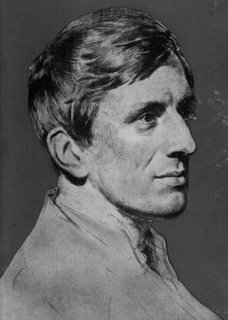 Spero News
Spero News traces the life and work of
Frederick William Faber (1814-1863) First Provost of the London Oratory, passionate promoter of the Faith and the cause of Our Blessed Lady, and composer of the Roman Catholic 'Anthem' Faith Of Our Fathers.
In the article is pointed out that:
Nevertheless, Faber had a renewed vigor. Among his congregation he identified a spiritual group he called his 'Belgravians'. Obtaining another room allowed for expansion. Newman started to come quite regularly and gave sermons, attracting such people as Thackeray and Charlotte Bronte.Newman is for Cardinal John Henry Newman. The picture on the right is a George Richmond (yes, the same that painted the famous Charlotte Brontë's portrait) 1844 portrait of him.
We have found some information about Newman's lectures and Charlotte's attendance in Winnifred Gérin's biography of Charlotte Brontë:
1850 Visit to London (May-June 1850)
Gérin's Charlotte Brontë: The evolution of Genius, Chapter XXII (p. 596 Additional notes to Chapter XXII)
Coinciding with C's visit to London that summer was a series of lectures given by 'Father' John Henry Newman, several of which she attended. Their subject was 'The Difficulties of Anglicans', delivered twice weekly on Thursdays and Fridays at the Oratory Church, King William St. Trand, beginning 9 May. The object of the lectures delivered by the brilliant convert only returned to England three years before and filled with fresh missionary zeal, was to carry along with him his former associates in the Tractarian Movement who had stopped short of taking the final step towards Rome. Starting from their common disillusionment with the Church of England, which he described as without antecedents in the Churches of other lands, and no more than a Government department, he called on his listeners to by-pass the High Church compromise, and go straight back to Rome. With his charm, his wit, his dialectics, he made an immense impact on his hearers, as the cartoons of Punch attest; conversions followed in numbers, the sanguine Cardinal Wiseman forecast the general return of England within the fold. Such a wave of feeling provoked the inevitable reaction; by the following November the Guy Fawkes celebrations were marked by scenes of violence and the burning in effigy of the Pope and Cardinal Wiseman. Only the politic action of the Cardinal in writing to the entire press on 23 Nov., steadied public opinion and won him respect. Amidst the heated arguments f the day, Charlotte Brontë was, as usual on religious questions, remarkable for the sobriety of her views. This Mrs. Gaskell noted on their first meeting at Windermere that summer. On 25 August she wrote to Catherine Winkworth of their talks together and of Charlotte's account of Newman's lectures given 'in a very quiet, concise, graphic way...'.It is to be noticed that according to the Oxford Companion of the Brontës, Charlotte didn't tell her father of her attendance to the lectures.
Categories: Brontëana,
Charlotte_Brontë









0 comments:
Post a Comment